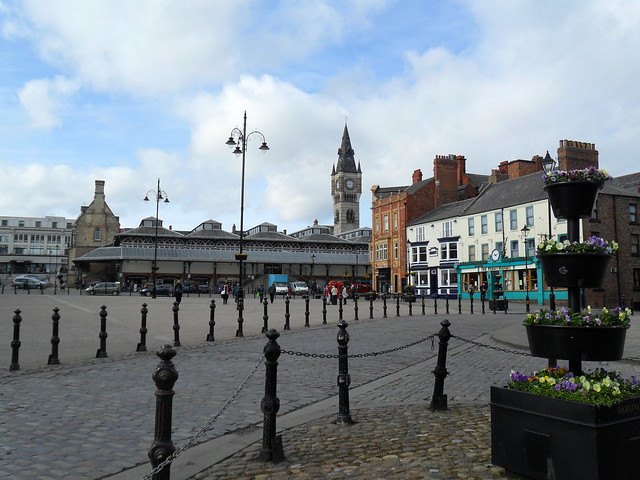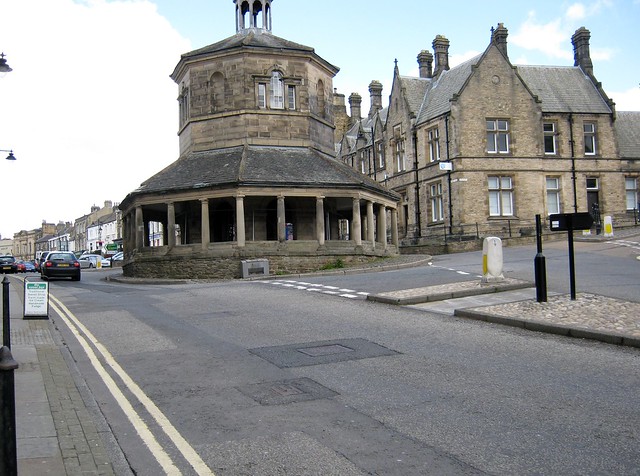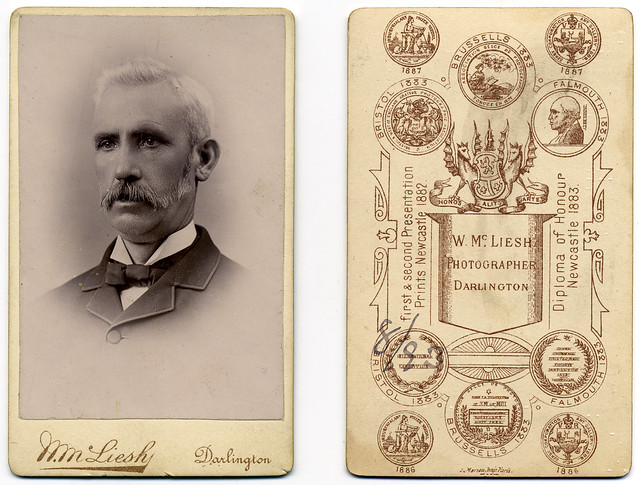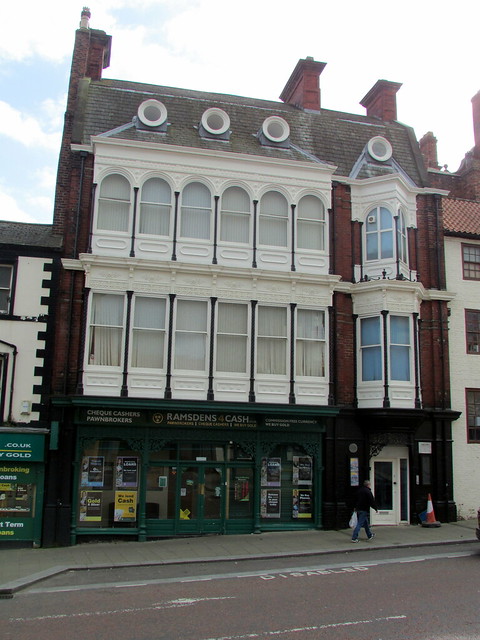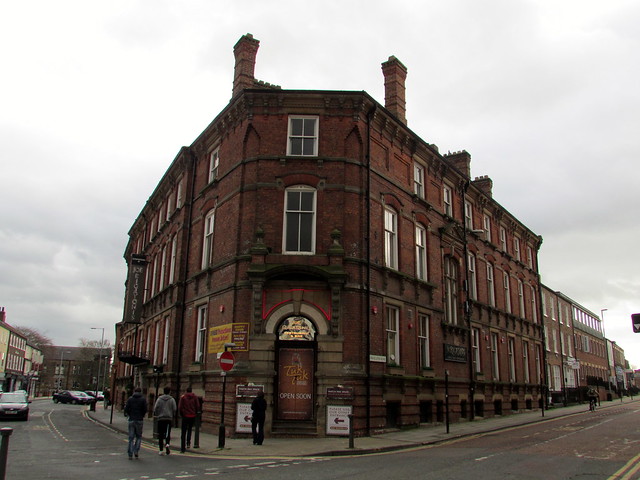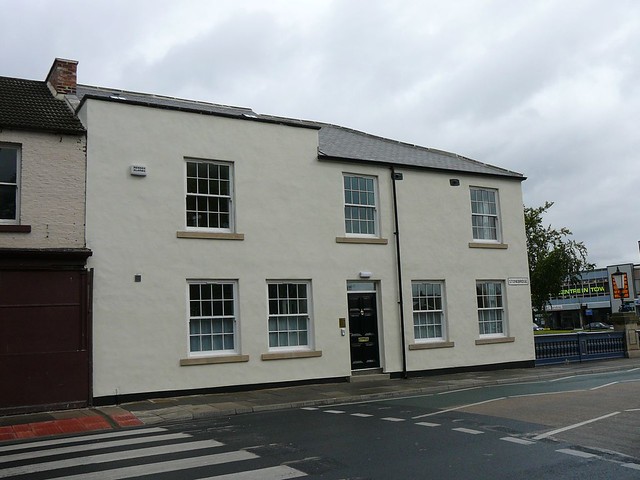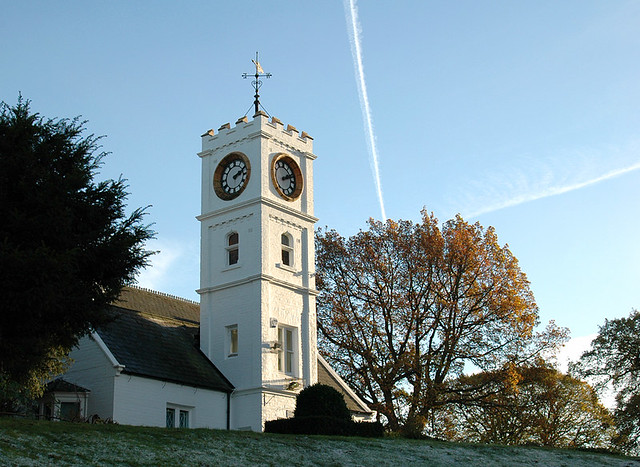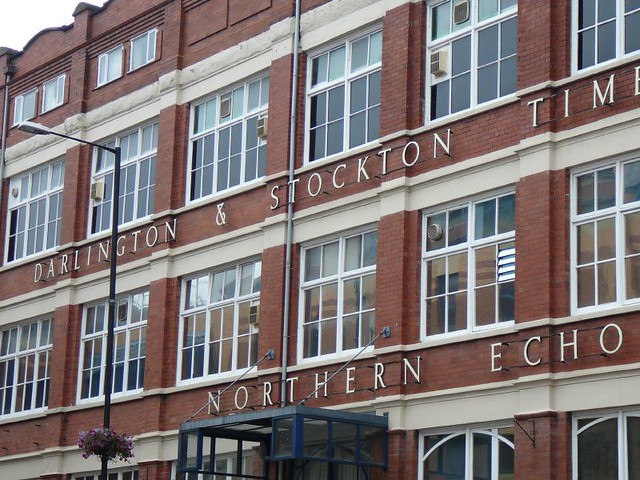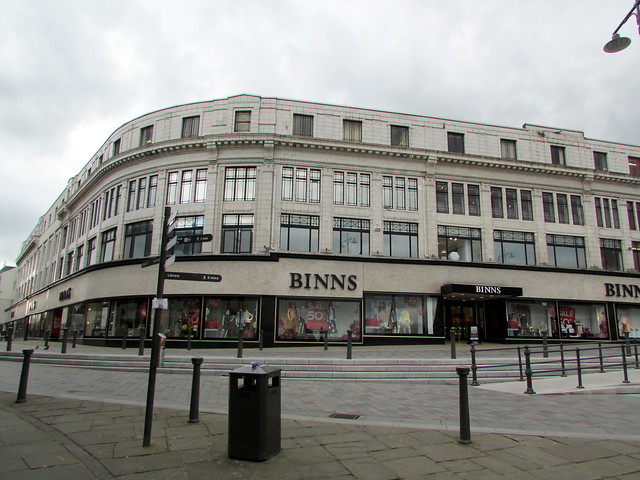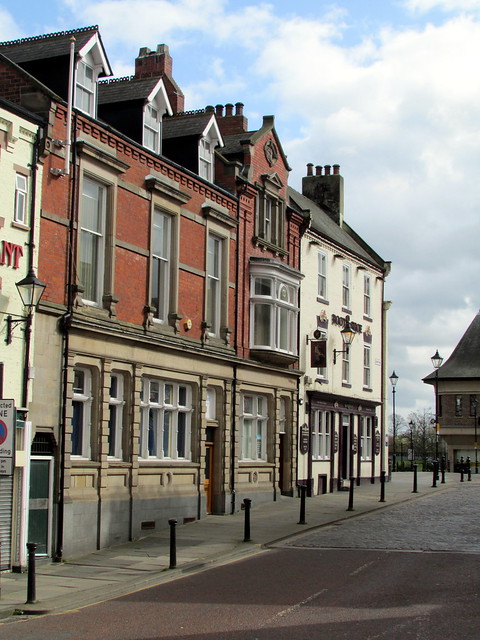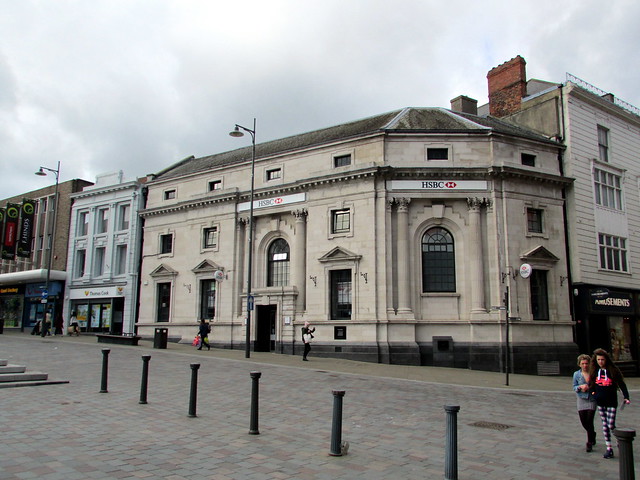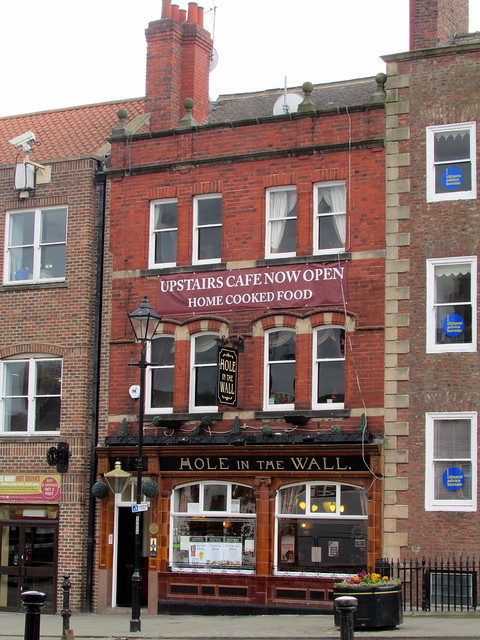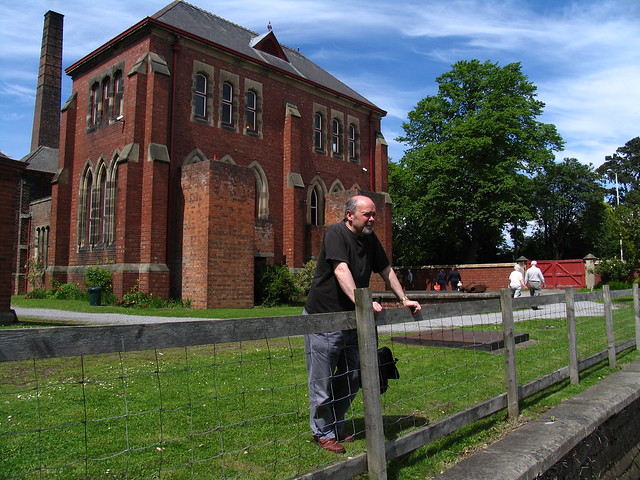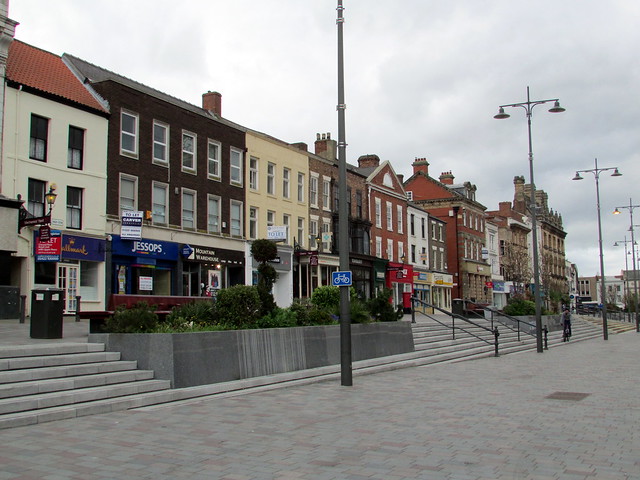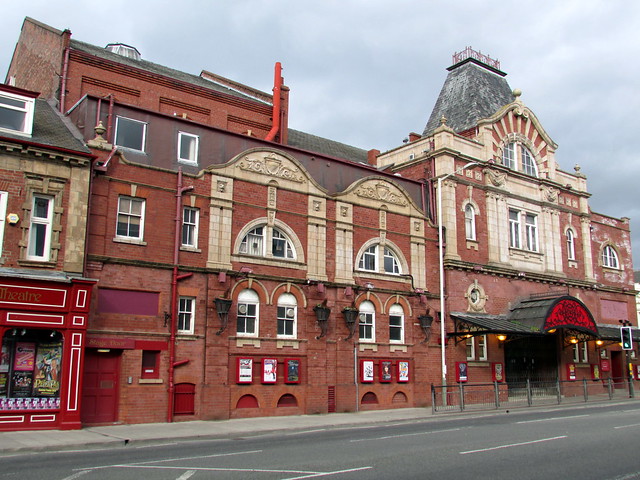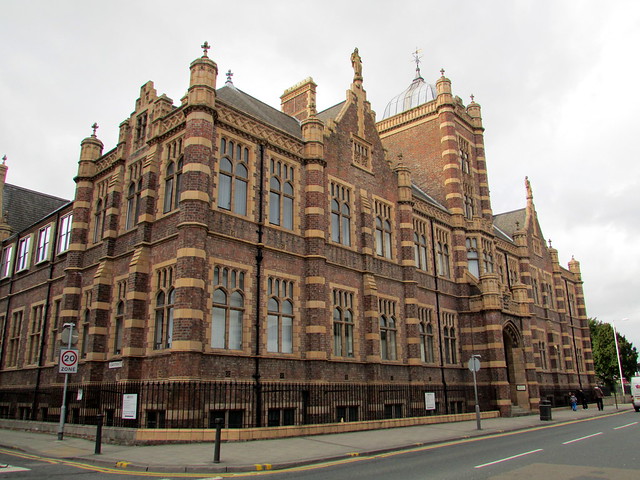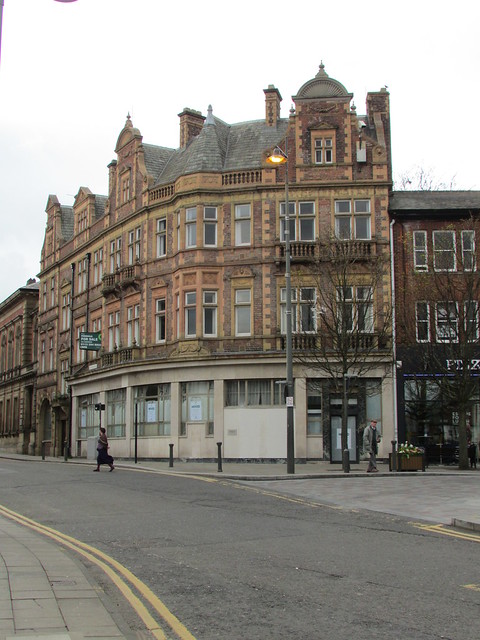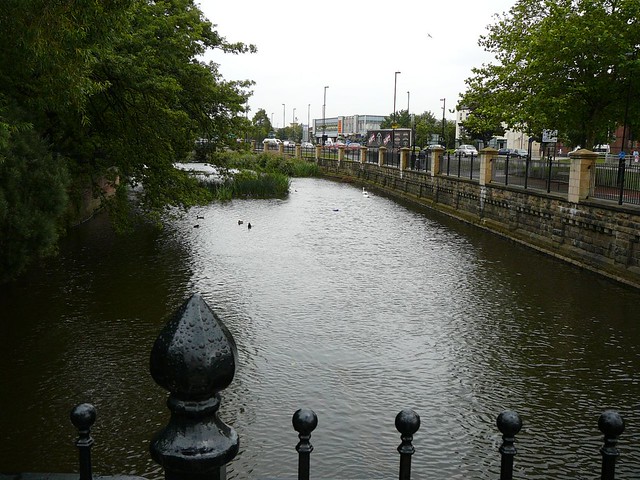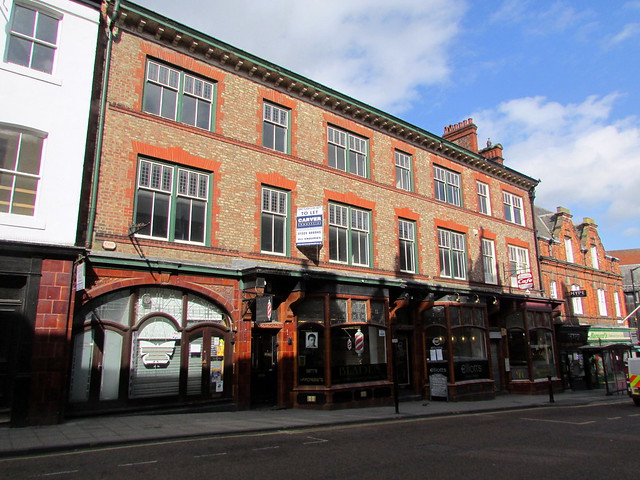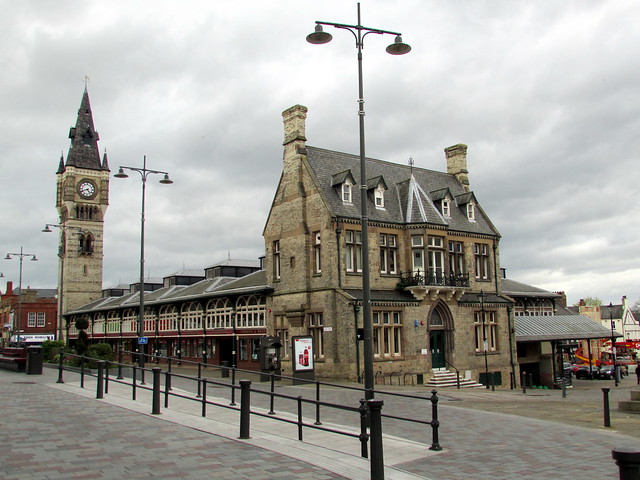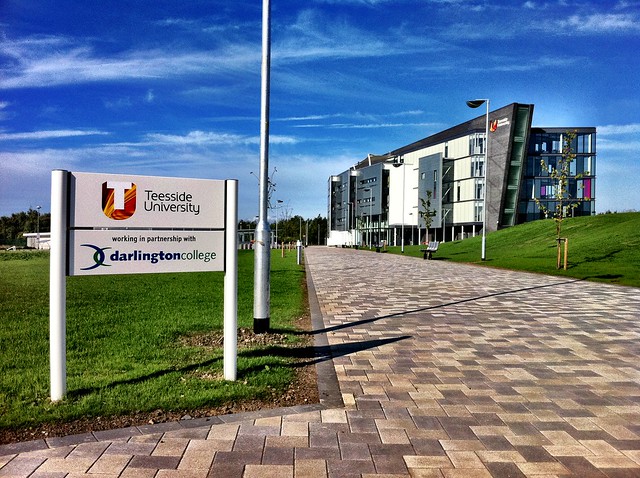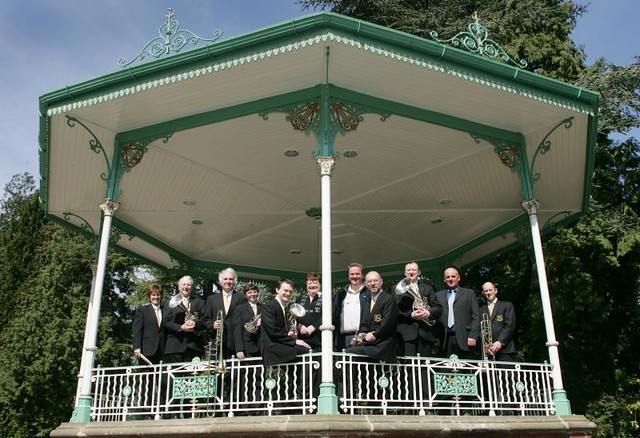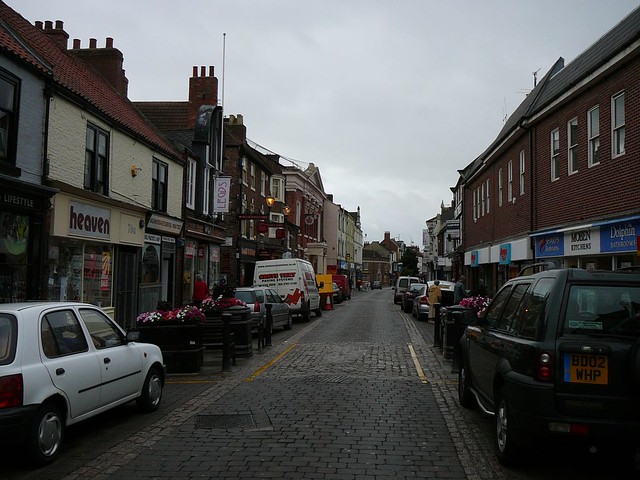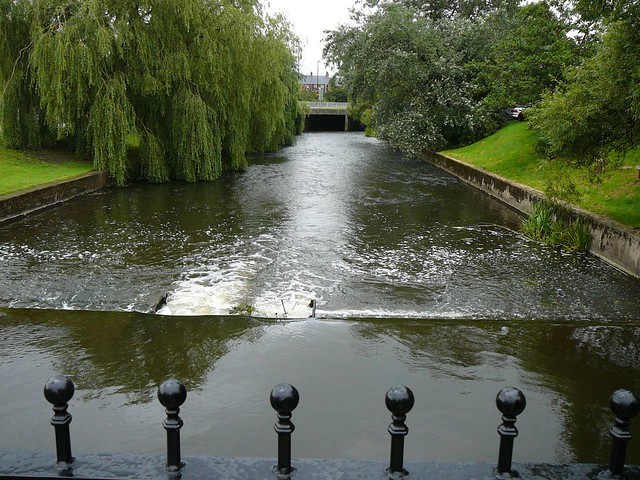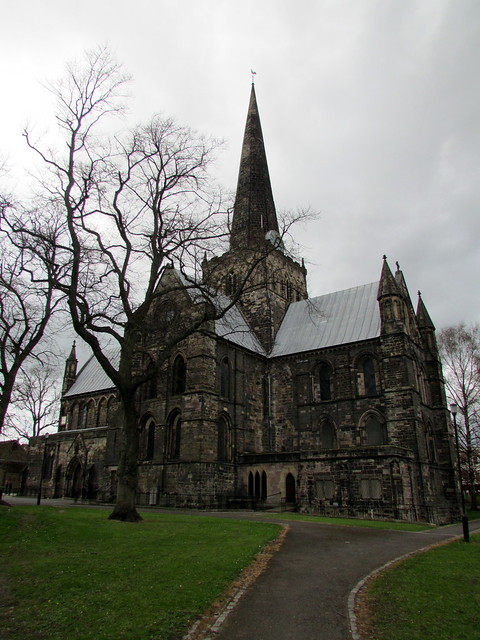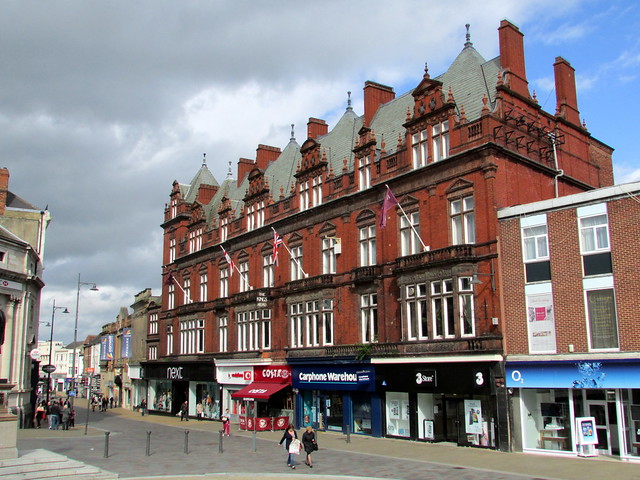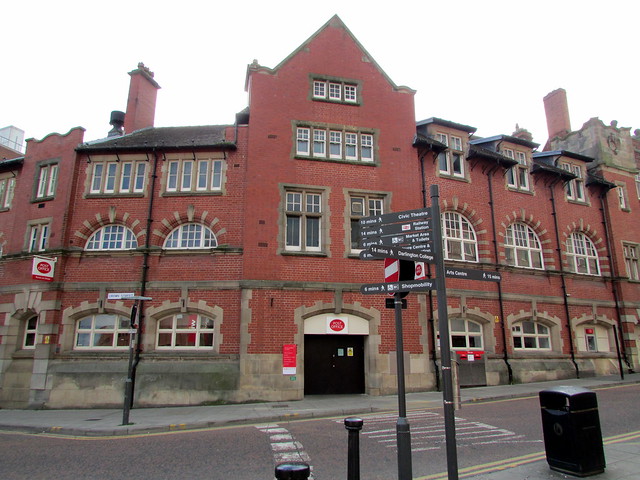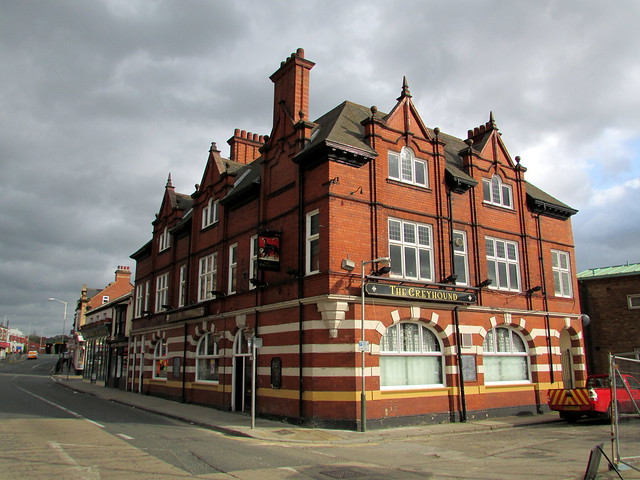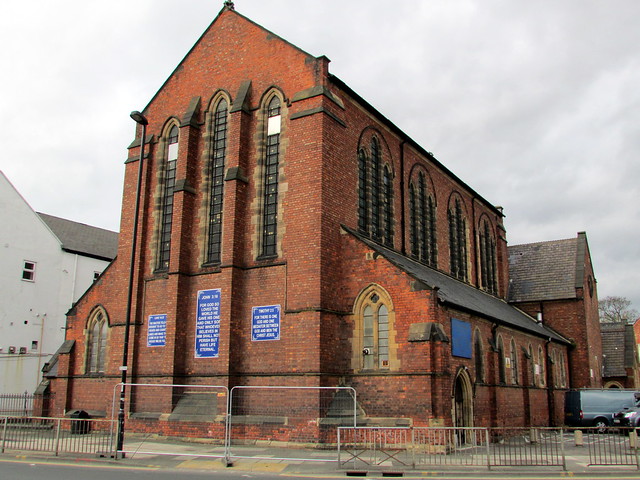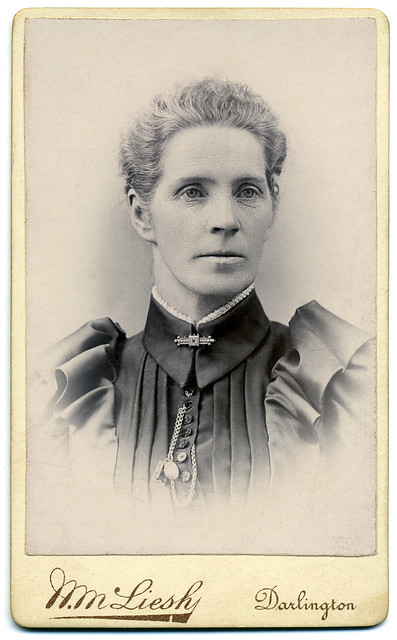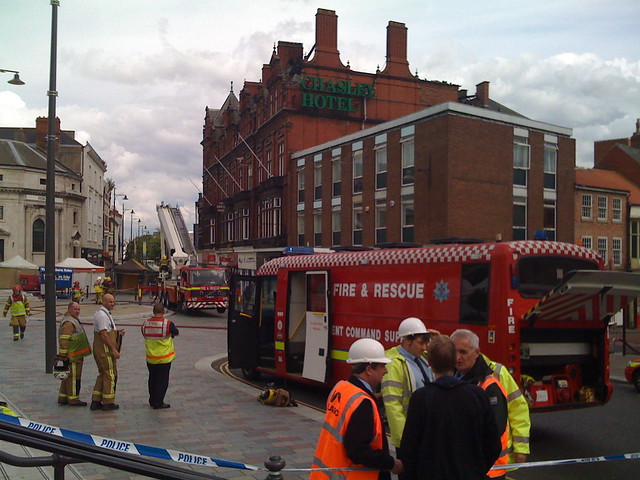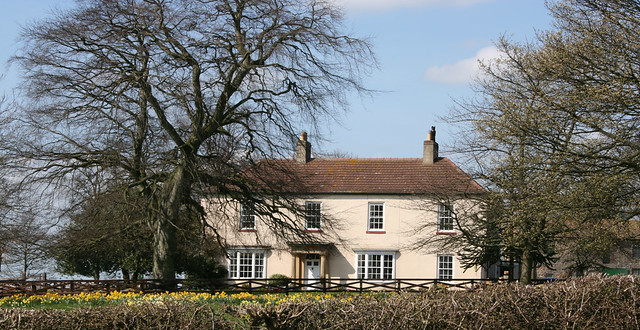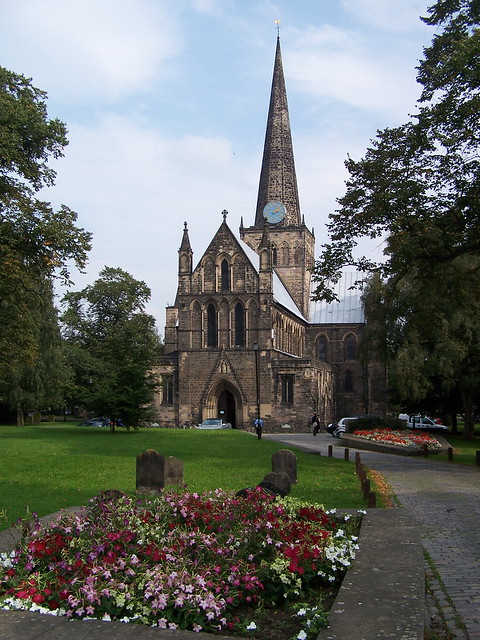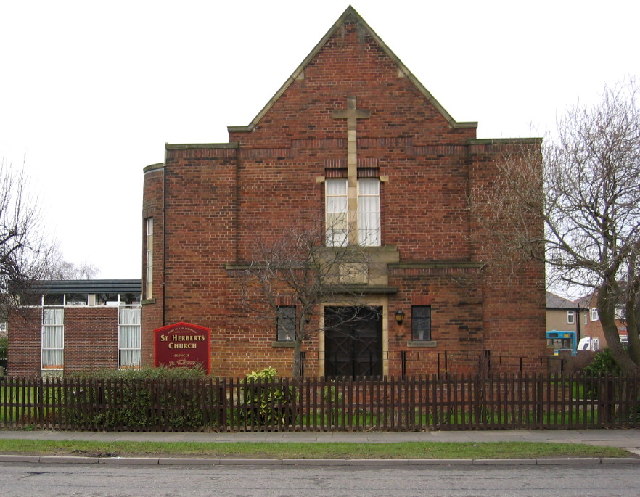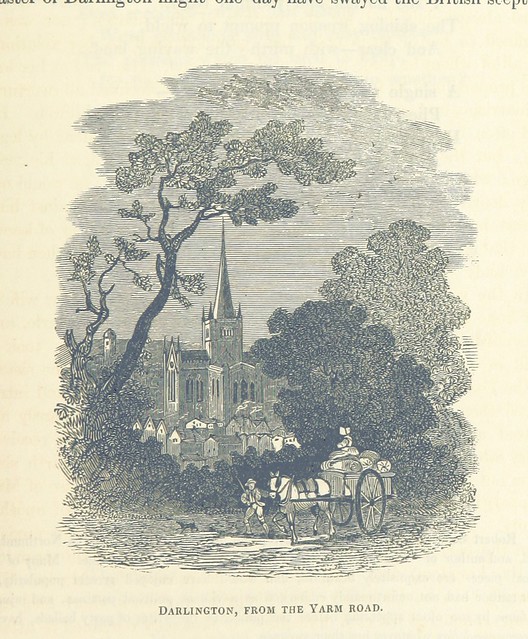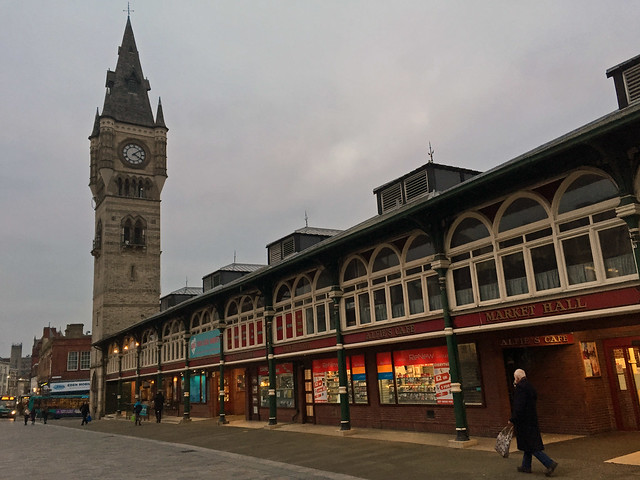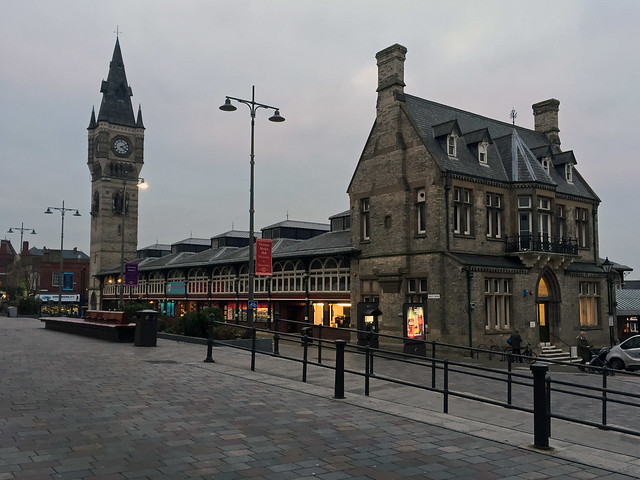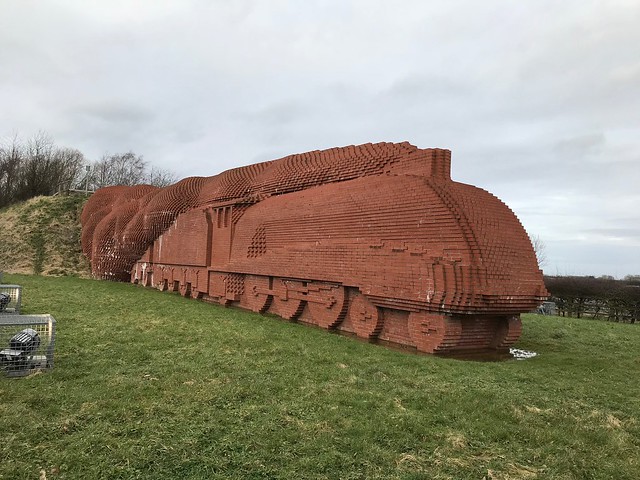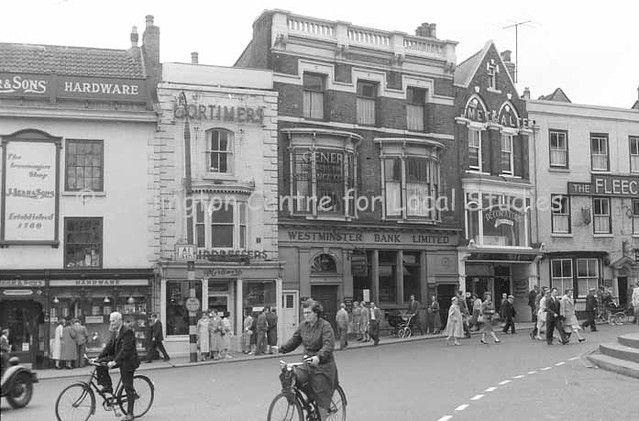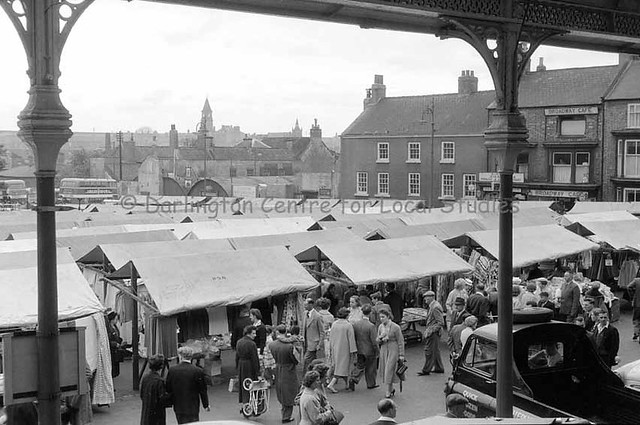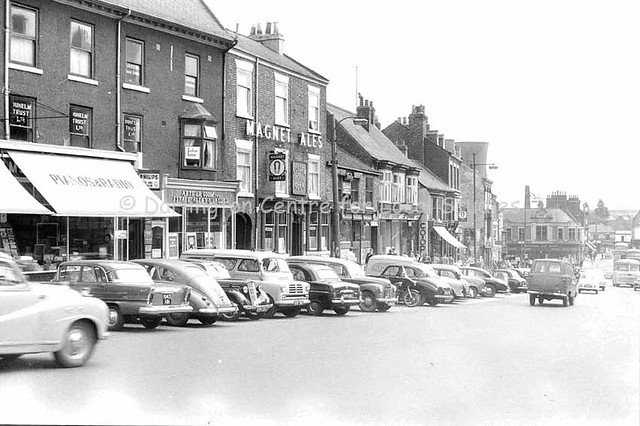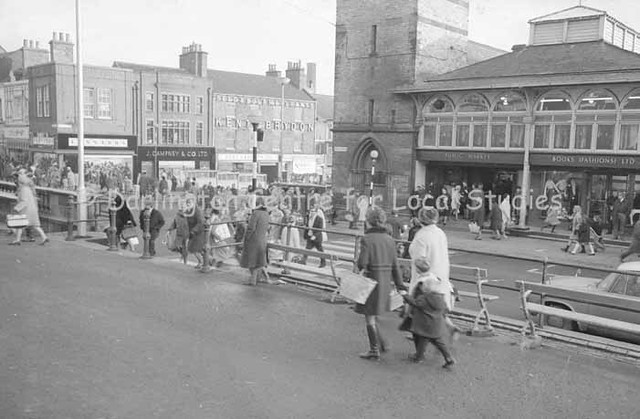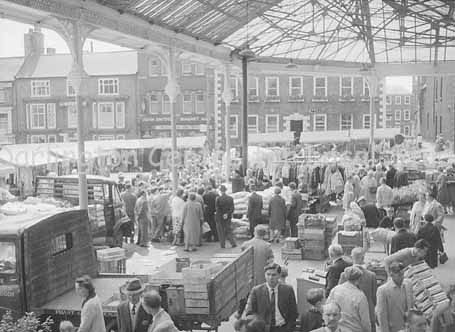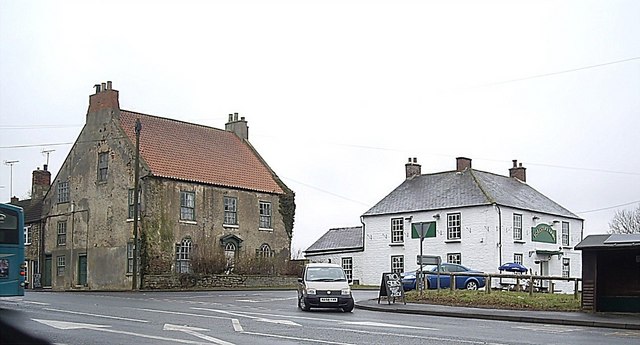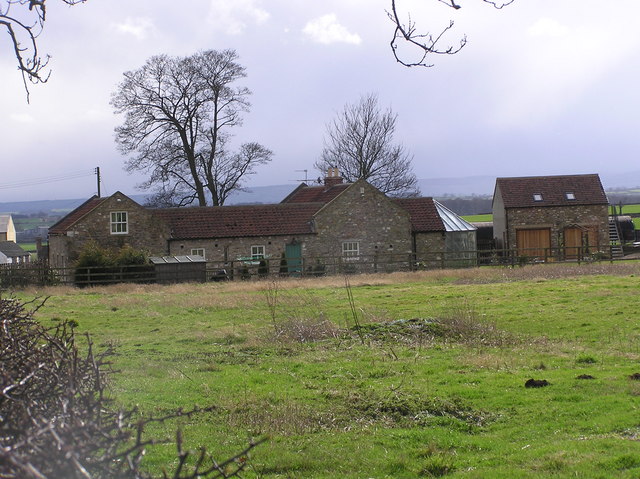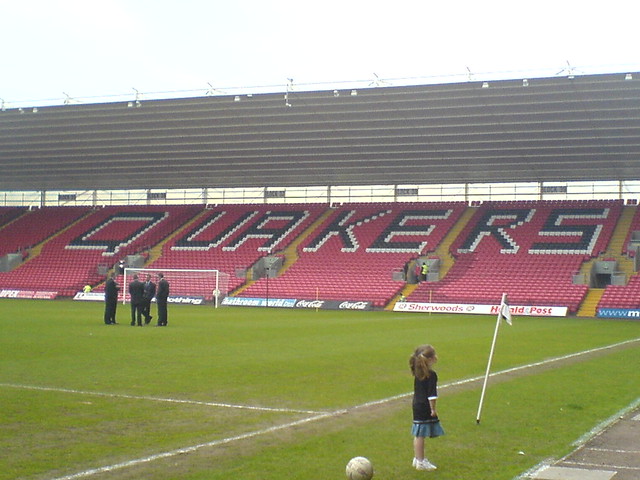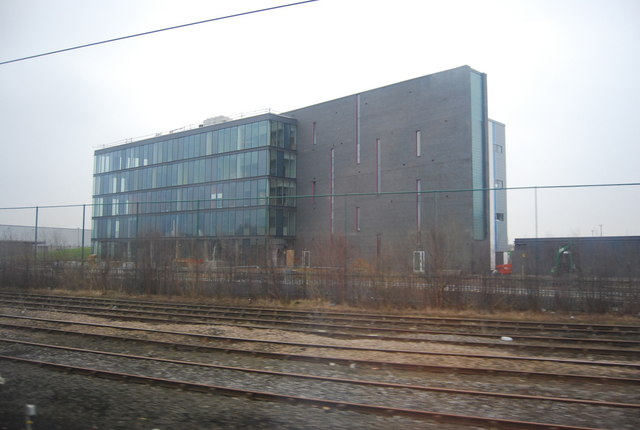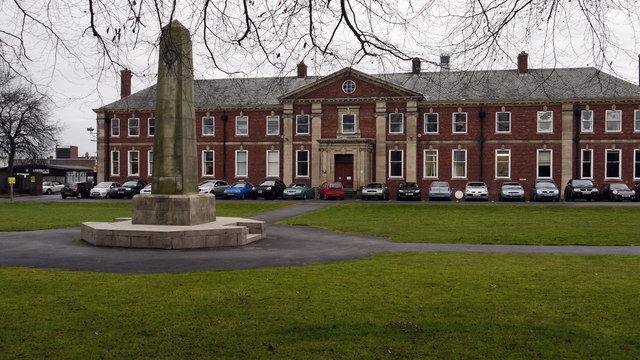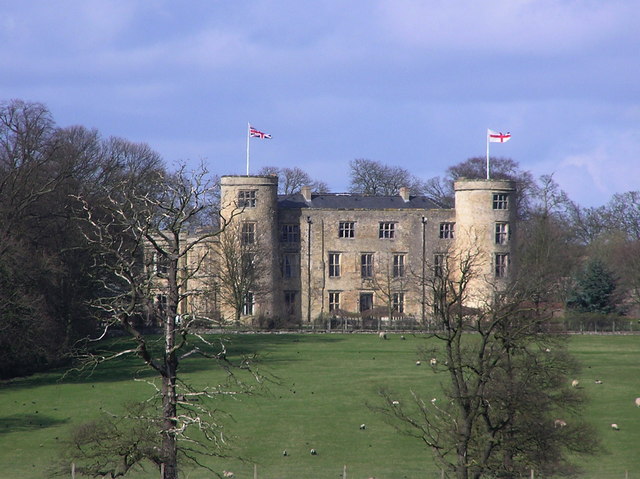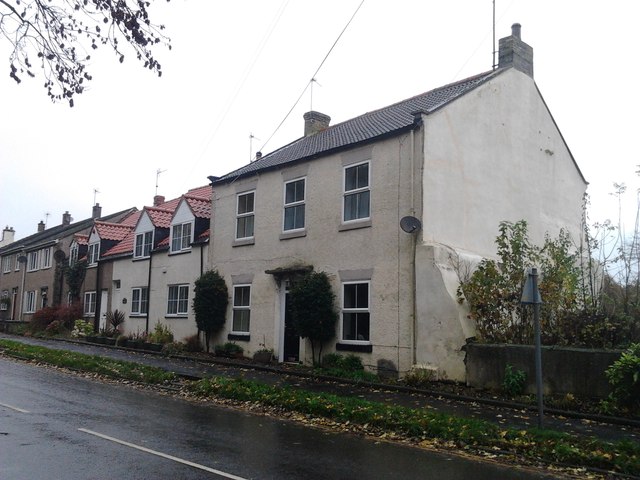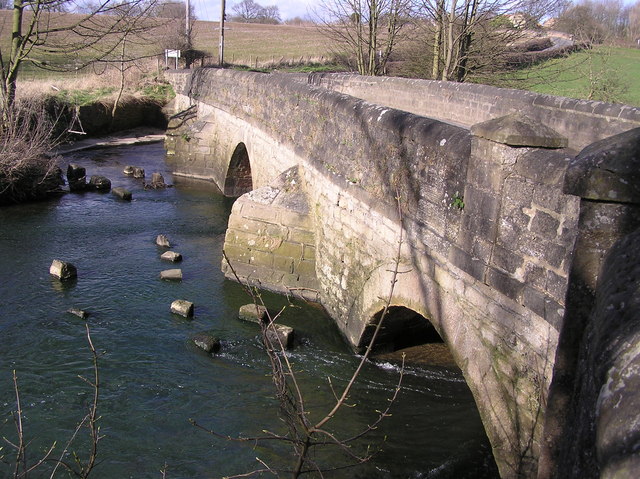Topics > Tees Valley > Darlington
Darlington
Darlington is a large town located near the River Tees, and about 16 miles south of the city of Durham and 12 miles west of Middlesbrough. The town forms part of the wider Borough of Darlington in Tees Valley, and is part of the ceremonial county of County Durham. The River Skerne pass through the town before it's confluence with the Tees. Originally known as 'Dearthington' the settlement at Darlington can be dated back to Anglo-Saxon times. During the Victorian era Darlington grew rapidly under the influence of local Quaker families and the opening of the Stockton and Darlington Railway, the world's first passenger steam railway, in 1825. In 1997 the unitary authority of Darlington was formed, including the town itself and numerous surrounding villages.
Help build the Darlington Timeline
Early history
Darlington started life as an Anglo-Saxon settlement. The name Darlington derives from the Anglo-Saxon Dearthington, which seemingly meant 'the settlement of Deornoth's people' but by Norman times the name had changed to Derlinton. During the 17th and 18th centuries the town was generally known by the name of Darnton.
Darlington has a historic market area in the town centre. Built in 1183, the Grade I listed St Cuthbert's Church is one of the most important early English churches in the north of England. However the oldest church in the town happens to be that of St Andrew's Church built around 1125 and presides in the Haughton area of Darlington.
Visiting during the 18th century, Daniel Defoe noted that the town was eminent for "good bleaching of linen, so that I have known cloth brought from Scotland to be bleached here". However he also disparaged the town, writing that it had "nothing remarkable but dirt" (the roads would typically be unpaved at the time).
The Durham Ox came from Darlington.
19th-century industry
During the early 19th century, Darlington remained a small market town. As the century progressed, powerful Quaker families such as the Pease and Backhouse families were prominent employers and philanthropists in the area. Darlington's most famous landmark, the clock tower, was a gift to the town by the industrialist Joseph Pease in 1864. The clock's face was produced by T. Cooke & Sons of York, and the tower bells were cast by John Warner & Sons of nearby Norton-on-Tees. These bells were in fact the sister bells to those which are inside the Elizabeth Tower at the Houses of Parliament in London, the most famous of which is called Big Ben. The Darlington Mechanics Institute was opened in 1854 by Elizabeth Pease Nichol, who had made the largest donation towards its building costs. The 91-acre South Park was redeveloped into its current form in 1853, with financial backing from the Backhouse family. Alfred Waterhouse, responsible for London's Natural History Museum and Manchester Town Hall, designed the Grade II listed Victorian Market Hall in 1860, and also the Backhouse's Bank building, now a branch of Barclays, in 1864, the latter taking three years to complete. George Gordon Hoskins was responsible for much of the town's architecture in this period, such as The King's Hotel. The Darlington Free Library was built with funding from Edward Pease, and opened in 1884.
Railways
Darlington is known for its associations with the birth of railways. This is celebrated in the town at Darlington Railway Centre and Museum. The world's first passenger rail journey was between Shildon and Stockton-on-Tees via Darlington, on the Stockton and Darlington Railway in 1825.
The town later became an important centre for railway manufacturing. An early railway works was the Hopetown Carriage Works (est.1853) which supplied carriages and locomotives to the Stockton and Darlington Railway. The engineering firm of William and Alfred Kitching also manufactured locomotives in the 19th century. The town developed to have three significant works; the largest of these was the main line Darlington Works, whose main works were known as the North Road Shops which opened in 1863 and closed in 1966. Another was Robert Stephenson & Co. (colloquially: "Stivvies"), who moved to Darlington from Newcastle upon Tyne in 1902, became Robert Stephensons & Hawthorns in 1937, were absorbed by English Electric around 1960, and closed by 1964. The third was Faverdale Wagon Works, established in 1923 and closed in 1962, which in the 1950s was a UK pioneer in the application of mass-production techniques to the manufacture of railway goods wagons.
To commemorate the town's contribution to the railways, David Mach's 1997 work "Train" is located alongside the A66, close to the original Stockton–Darlington railway. It is a life-size brick sculpture of a steaming locomotive emerging from a tunnel, made from 185,000 "Accrington Nori" bricks. The work had a budget of £760,000.
For 19 years, the A1 Steam Locomotive Trust built a 50th member of the long withdrawn LNER Peppercorn Class A1 engine, called 'Tornado' and numbered 60163, from scratch in the 1853 former Stockton and Darlington Railway Carriage Works at Hopetown. Many of the original fleet had been built at Darlington locomotive works in the late 1940s.
Engineering
Darlington has long been a centre for engineering, particularly bridge building. Bridges built in Darlington are found as far away as the River Nile and the River Amazon. The large engineering firm Cleveland Bridge & Engineering Company still has its headquarters in the town. The firm built the Tyne Bridge, Middlesbrough Transporter Bridge and the Humber Bridge, as well as the Sydney Harbour Bridge. One of the leading engine building firms, Cummins, has major premises in Darlington, and it houses the industrial headquarters of AMEC. The engineering companies Darlington Forge Company (cl.1967) and Whessoe also originated in Darlington.
Other
In 1870, The Northern Echo newspaper was launched. It is based in Priestgate and is a long-standing part of life in the North East. Although a regional paper, it is a full-bodied newspaper in its own right and includes national and international news in its scope, as well as having a well-maintained website and active social media presence. William Thomas Stead was a notable editor of The Northern Echo who died in 1912 on the Titanic. Opposite The Northern Echo building is The William Stead public house, restaurant and beer garden.
Recent history
In 1939, Darlington had the most cinema seats per head of population in the United Kingdom.
The town centre has undergone a full refurbishment entitled The Pedestrian Heart, which has seen the majority of the town centre pedestrianised. Initially, the project received criticism surrounding changes to public transport, and removal of Victorian features along High Row. There is now growing evidence, however, that the now-completed changes are meeting with local approval. Then in 2014, the town saw the revamp of one of its old cinemas, The Majestic, from a failing Bingo Hall into what it is now, fully restored to its former glory. The space features a soft-play area downstairs and will feature a restaurant and theatre in the upper floor.
In August 2008 the King's Hotel in the town centre was devastated by fire, severely damaging the roof and 100 bedrooms. Several shops, including Woolworths, were damaged and had to close for weeks afterwards. No one was killed in the blaze. The hotel was carefully restored to its former glory and re-opened in 2012.
Visit the page: Darlington for references and further details. You can contribute to this article on Wikipedia.

from Newcastle University (youtube)
A Century Of Progress - In Locomotion Orange Tint (1925)
Pinned by Simon Cotterill
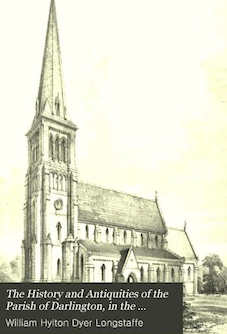
from http://books.google.co.uk/boo…
The History and Antiquities of the Parish of Darlington, in the Bishoprick. William Hylton Dyer Longstaffe, 1854
- Digitised book from 1854 digitised and available as a free Google eBook.
Added by
Simon Cotterill
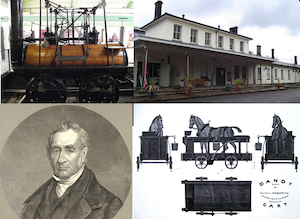
Co-Curate Page
Stockton and Darlington Railway
- Overview Early History The Stockton and Darlington Railway was the world's first public railway to use steam locomotives. The railway was primarily built to transport coal from collieries around Shildon, …

from Flickr (flickr)
Hopetown Carriage Works, including NELPG & DRPS locos, Darlington 30.06.2009 P6300105
Pinned by Simon Cotterill

from Flickr (flickr)
Hopetown Carriage Works, Darlington 30.06.2009 P6300124
Pinned by Simon Cotterill
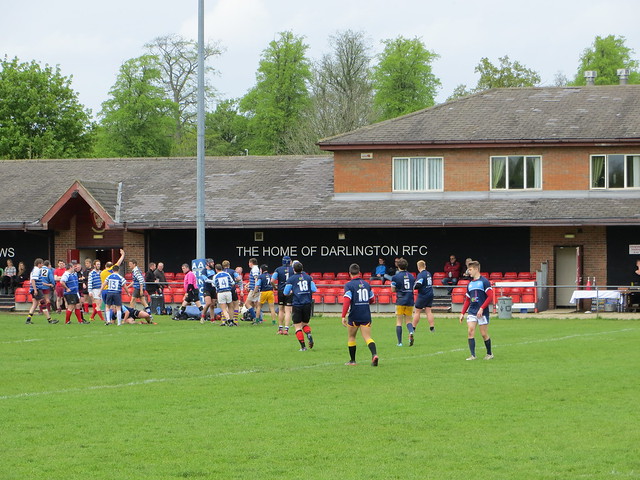
from Flickr (flickr)
Darlington RFC, Blackwell Meadows, Darlington, May 2014
Pinned by Simon Cotterill
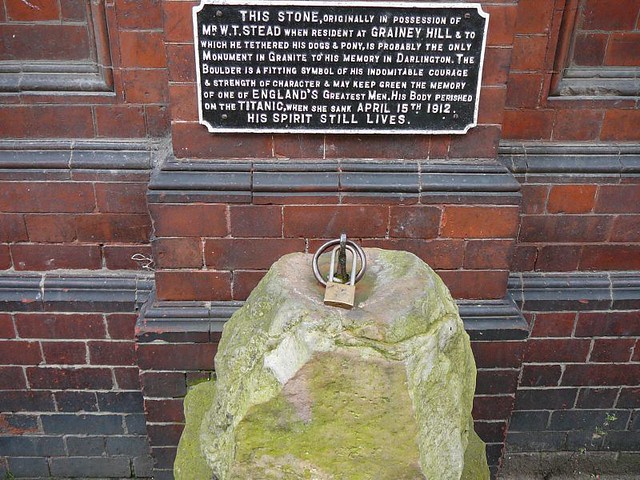
Co-Curate Page
William Thomas Stead (1849-1912)
- William Stead was a pioneer of investigative journalism and one of the first people to show how the press could be used to influence public opinion and government. Stead was …

Co-Curate Page
Great Fire of Darlington, 1585
- "THE Great Fire of Darlo showed how devastating blazes could be in medieval times. It broke out on May 7, 1585, and within two hours the “most fierce and terrible …
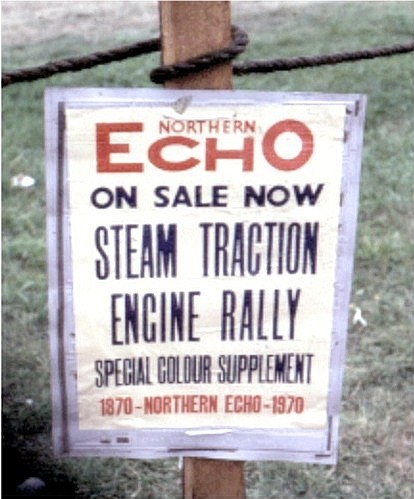
Co-Curate Page
Northern Echo
- The Northern Echo is a regional daily newspaper, based in Darlington, which covers both regional and national news. The paper was founded by John Hyslop Bell and published its first …
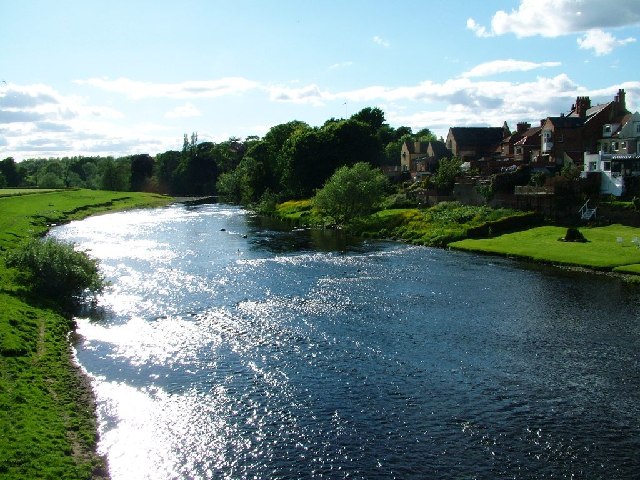
Co-Curate Page
Hurworth-on-Tees
- Hurworth-on-Tees is a village in the borough of Darlington in County Durham. It is located on the banks of the River Tees, close to its meeting point with the River …
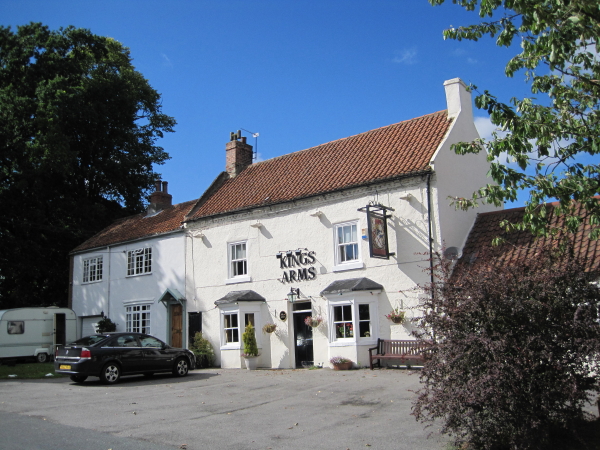
Co-Curate Page
Great Stainton
- Overview Map Street View Great Stainton is a small rural village in the borough of Darlington in the ceremonial county of County Durham, and to the west of Stockton-on-Tees. The village …

from Flickr (flickr)
Darlington Corporation 1964 Daimler Double-Decker (Roker Pier in background)
Pinned by Simon Cotterill
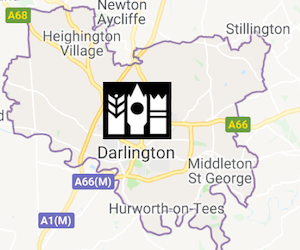
Co-Curate Page
Borough of Darlington
- Overview About the Borough of Darlington Darlington Borough Council is a unitary authority in the ceremonial county of County Durham. The borough is part of the Tees Valley combined authority. …
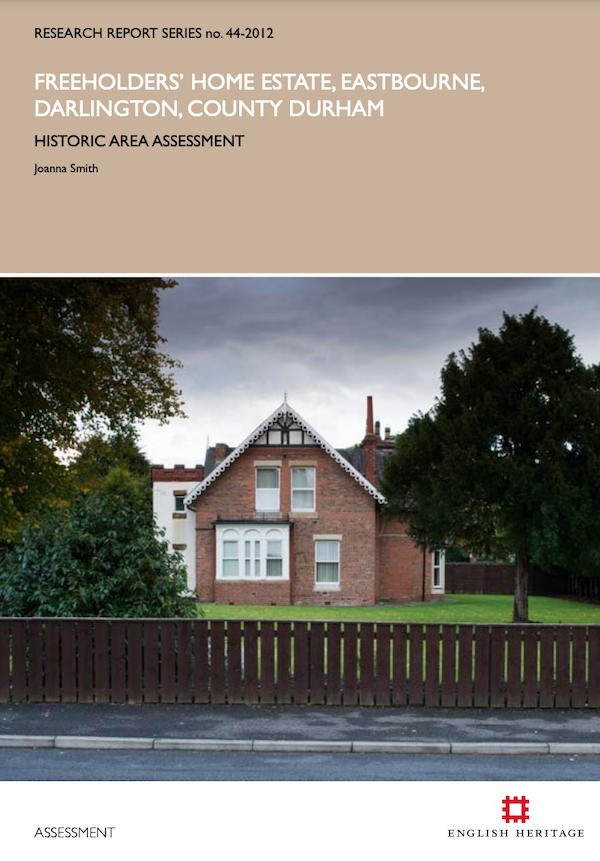
from https://historicengland.org.u…'HomeEstateEastbourneDarlingtonDurham_HistoricAreaAssessment
Freeholders' Home Estate, Eastbourne, Darlington, Durham: Historic Area Assessment
- Joanna Smith. Historic England. ISSN 2046-9802 (Online). "The suburb of Eastbourne lies on the east side of Darlington, extending out from the railway related development around Bank Top along Yarm …
Added by
Simon Cotterill
Co-Curate Page
Historic Buildings and Monuments in the Borough of Darlington
- Listed buildings and scheduled monuments in the Borough of Darlington, from the National Heritage List for England[1]. Use the Search (below) if looking for a specific building / monument. Structure …

from Youtube (youtube)
New rudder of the S.S. Aquitania weighs 54 tons (1928)
Pinned by Simon Cotterill

from Flickr (flickr)
Stone Bridge and St Cuthberts Church, Darlington. Date unknown
Pinned by Pat Thomson


from Newcastle University (youtube)
A Century Of Progress - In Locomotion Orange Tint (1925)
Pinned by Simon Cotterill

from http://books.google.co.uk/boo…
The History and Antiquities of the Parish of Darlington, in the Bishoprick. William Hylton Dyer Longstaffe, 1854
- Digitised book from 1854 digitised and available as a free Google eBook.
Added by
Simon Cotterill

Co-Curate Page
Stockton and Darlington Railway
- Overview Early History The Stockton and Darlington Railway was the world's first public railway to use steam locomotives. The railway was primarily built to transport coal from collieries around Shildon, …

from Flickr (flickr)
Hopetown Carriage Works, including NELPG & DRPS locos, Darlington 30.06.2009 P6300105
Pinned by Simon Cotterill

from Flickr (flickr)
Hopetown Carriage Works, Darlington 30.06.2009 P6300124
Pinned by Simon Cotterill

from Flickr (flickr)
Darlington RFC, Blackwell Meadows, Darlington, May 2014
Pinned by Simon Cotterill

Co-Curate Page
William Thomas Stead (1849-1912)
- William Stead was a pioneer of investigative journalism and one of the first people to show how the press could be used to influence public opinion and government. Stead was …

Co-Curate Page
Great Fire of Darlington, 1585
- "THE Great Fire of Darlo showed how devastating blazes could be in medieval times. It broke out on May 7, 1585, and within two hours the “most fierce and terrible …

Co-Curate Page
Northern Echo
- The Northern Echo is a regional daily newspaper, based in Darlington, which covers both regional and national news. The paper was founded by John Hyslop Bell and published its first …

Co-Curate Page
Hurworth-on-Tees
- Hurworth-on-Tees is a village in the borough of Darlington in County Durham. It is located on the banks of the River Tees, close to its meeting point with the River …

Co-Curate Page
Great Stainton
- Overview Map Street View Great Stainton is a small rural village in the borough of Darlington in the ceremonial county of County Durham, and to the west of Stockton-on-Tees. The village …

from Flickr (flickr)
Darlington Corporation 1964 Daimler Double-Decker (Roker Pier in background)
Pinned by Simon Cotterill

Co-Curate Page
Borough of Darlington
- Overview About the Borough of Darlington Darlington Borough Council is a unitary authority in the ceremonial county of County Durham. The borough is part of the Tees Valley combined authority. …

from https://historicengland.org.u…'HomeEstateEastbourneDarlingtonDurham_HistoricAreaAssessment
Freeholders' Home Estate, Eastbourne, Darlington, Durham: Historic Area Assessment
- Joanna Smith. Historic England. ISSN 2046-9802 (Online). "The suburb of Eastbourne lies on the east side of Darlington, extending out from the railway related development around Bank Top along Yarm …
Added by
Simon Cotterill
Co-Curate Page
Historic Buildings and Monuments in the Borough of Darlington
- Listed buildings and scheduled monuments in the Borough of Darlington, from the National Heritage List for England[1]. Use the Search (below) if looking for a specific building / monument. Structure …

from Youtube (youtube)
New rudder of the S.S. Aquitania weighs 54 tons (1928)
Pinned by Simon Cotterill

from Flickr (flickr)
Stone Bridge and St Cuthberts Church, Darlington. Date unknown
Pinned by Pat Thomson
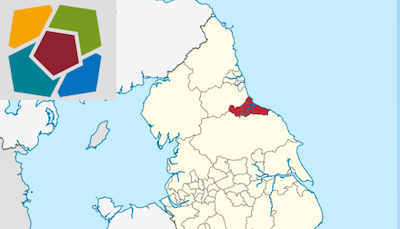
Tees Valley
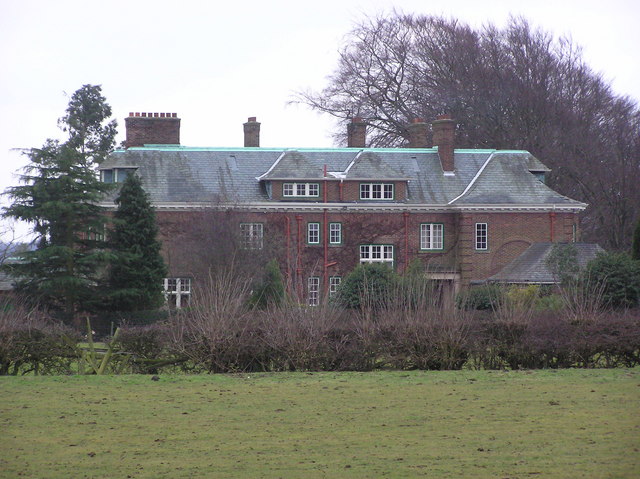
Blackwell, Darlington
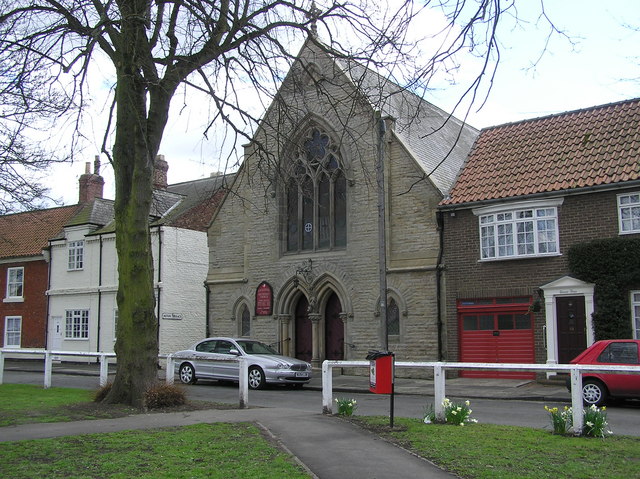
Cockerton
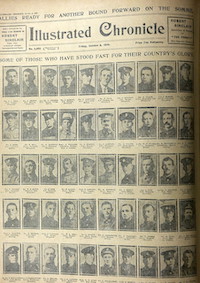
Darlington at War
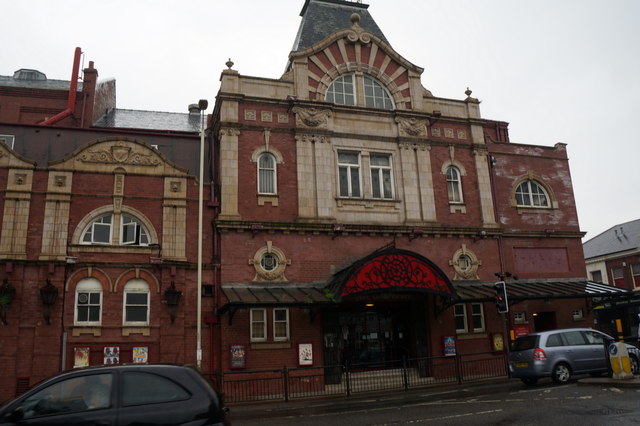
Darlington Civic Theatre
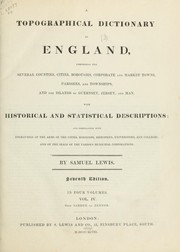
Darlington Parish, 1848
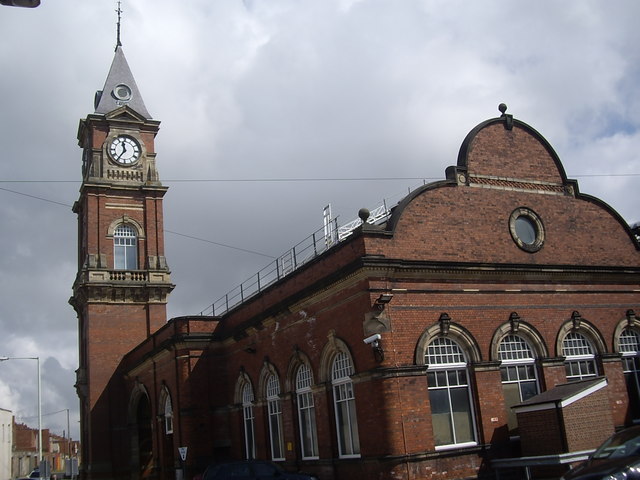
Darlington Railway Station

Darlington Town Centre Conservation Area
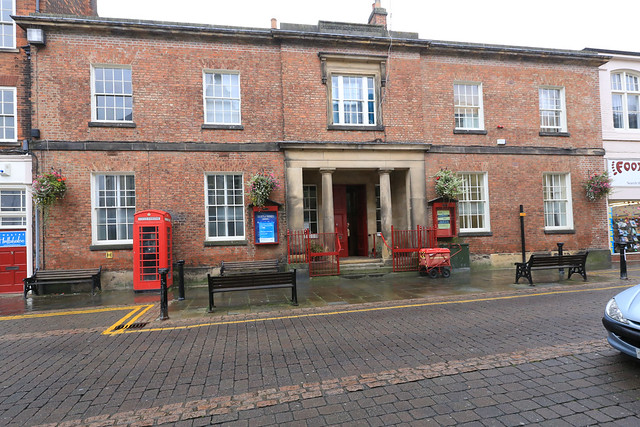
Friends Meeting House, Darlington
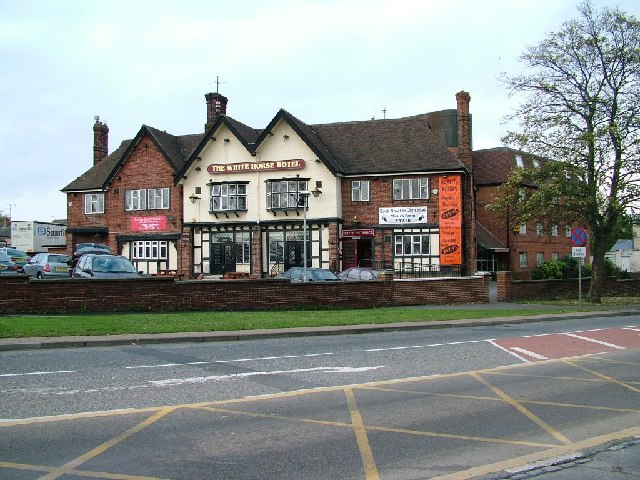
Harrowgate Hill
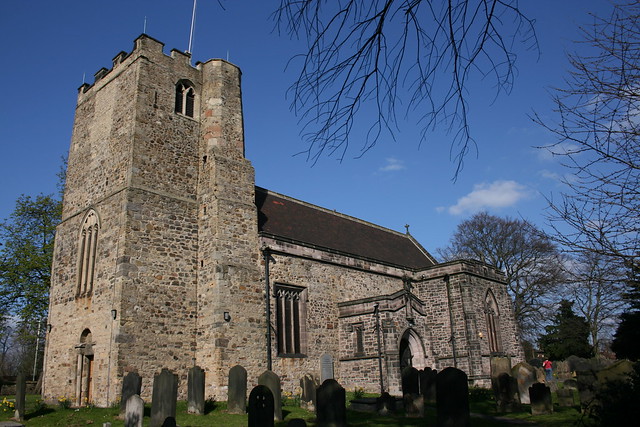
Haughton-le-Skerne
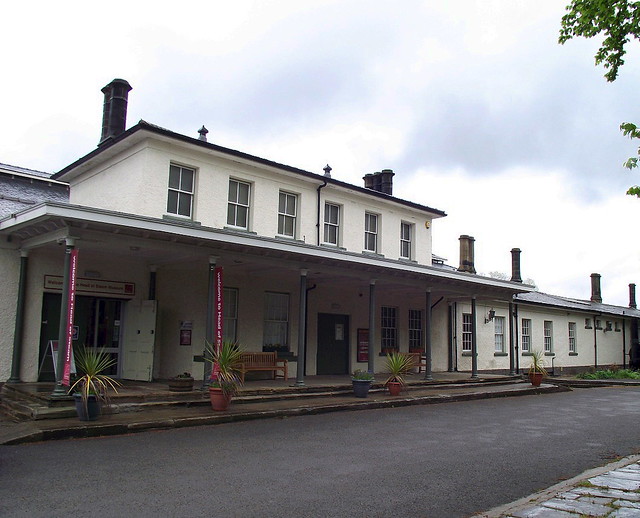
Head of Steam - Darlington Railway Museum
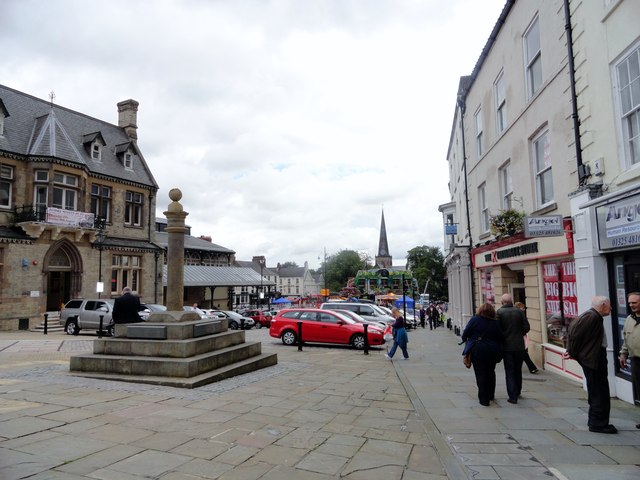
Horsemarket, Darlington

Map and Aerial View of Darlington
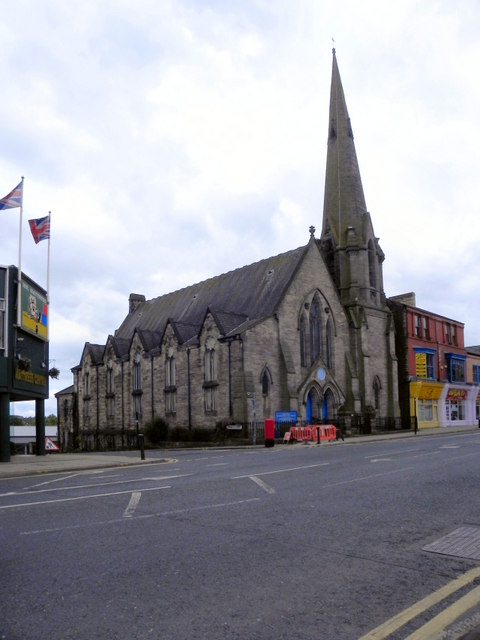
Northgate, Darlington

Northgate Conservation Area, Darlington

Parkgate Conservation Area, Darlington
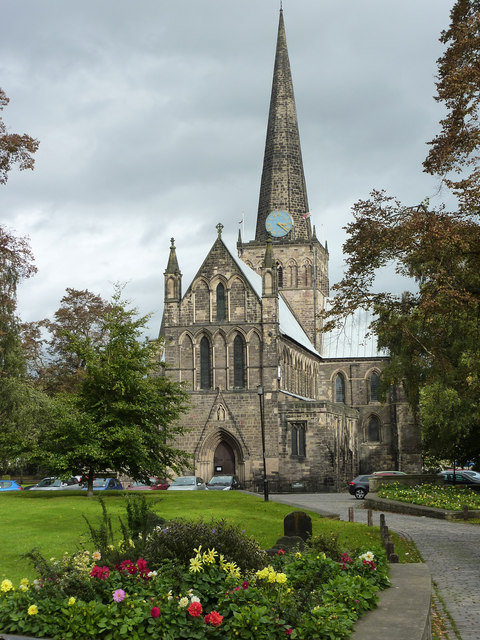
St Cuthbert's Church, Darlington
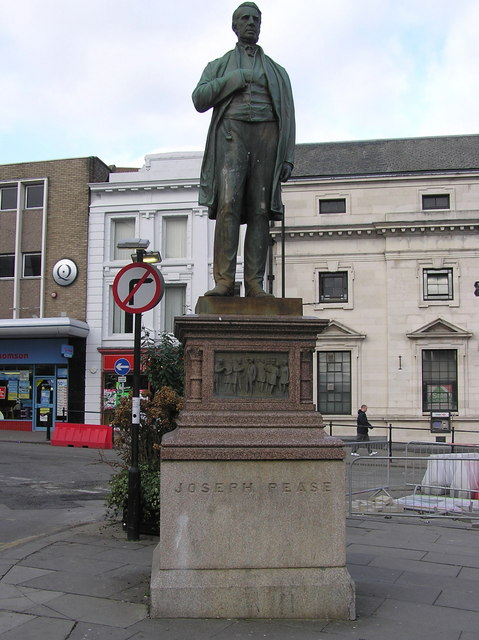
Statue of Statue of Joseph Pease, Darlington

Victoria Embankment Conservation Area, Darlington

West End Conservation Area, Darlington
